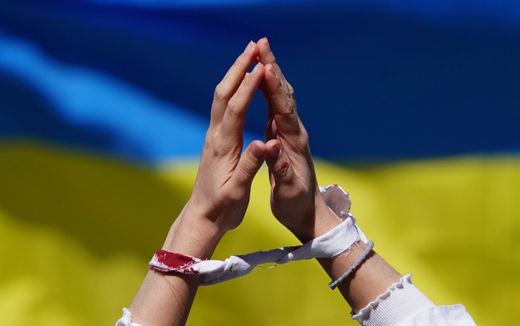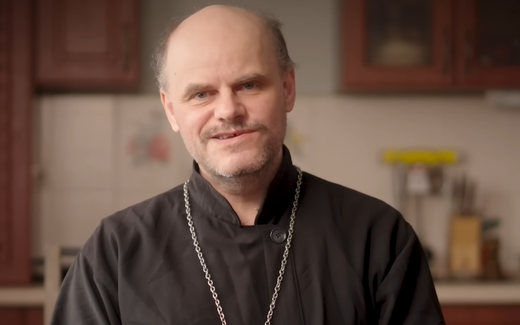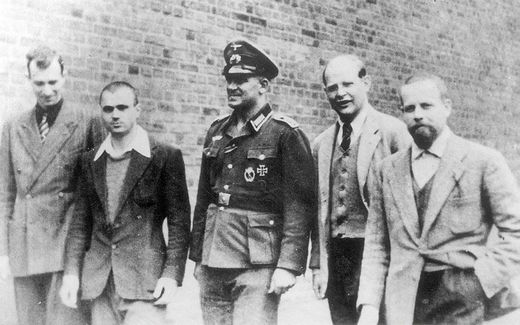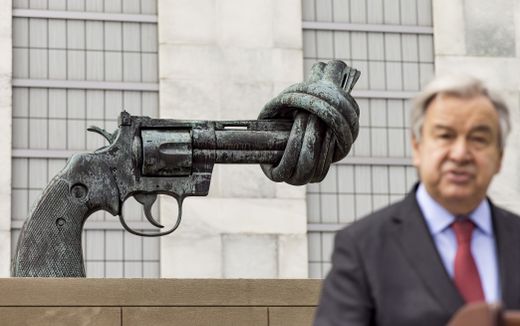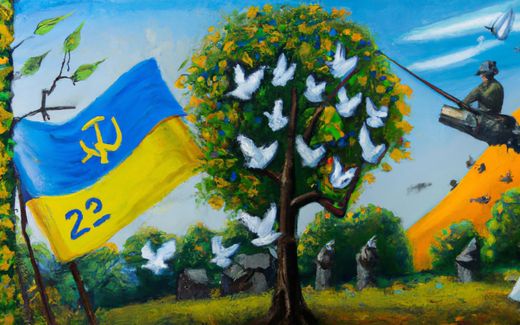Why this pacifist broke Ukraine’s law but is ‘not guilty before God’s law’
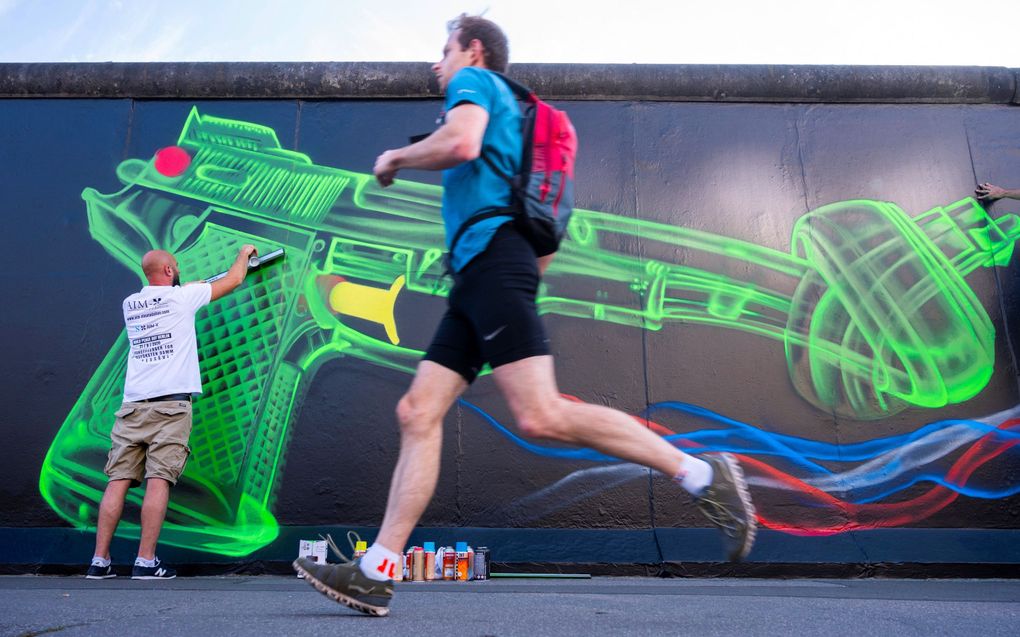
Variation of the "knotted gun" in Berlin. Photo AFP, John Macdougall
Christian Life
Vitali Alekseenko may be a pacifist, but he is far from passive. For three years, he has been fighting in Ukrainian courts for what he sees as his right: exemption from military service. Last month, on May 6th, the Constitutional Court in Kyiv took up his case.
Stay up to date with Christian news in Europe? Sign up for CNE's newsletter.
Alekseenko once conducted an alternative military service. The law in Ukraine facilitates the exemption from bearing arms for people who have conscientious objections, as reported by Human Rights without Borders.
But the Ukrainian government says: Religious people’s conscientious objections are all fine, but the exception only applies in times of peace. If our country is at war and needs to be defended, we demand that everyone take up arms.
For almost all religious objectors, this is logical. A few weeks ago, a colleague and I had a lengthy podcast interview with the vice-chairman of the Ukrainian Baptist Union, Pastor Igor Bandura. For him, it was straightforward. “Before the Russian invasion, 99 per cent of all Protestants were pacifists,” he said. “But now there are few left.” Alekseenko belongs to that select few.
Personally, I have always found this Christian pacifism fascinating. At the same time, I grew up with a very different view. This has to do with how we experienced our Dutch national history. Partly because God gave us a free Protestant country in the sixteenth and seventeenth centuries through the military courage of the early members of the House of Orange. For us, as their heirs, it was, therefore, an honour to defend that country and, if necessary, with weapons.
But later, I learned that things can be very different for Christians from other countries. It is not without reason that many Christians in Germany opt for alternative service. They don’t look back on the past with gratitude, but rather with fear. That is a huge difference.
Pastor Igor Bandura (born in 1970) said during the interview that he was once called up for the Soviet army. At the time, he was also a pacifist. “That was my protest against the godless country,” he said. He could not avoid conscription but did not have to carry a weapon.
After the Russian occupation of Crimea in 2014, all Baptist pastors held a conference on this subject. They concluded that both positions (for and against bearing arms) were defensible from a biblical point of view, and that the churches should not bind the consciences of their members.
In other words, pacifism was no longer the Christian default position. This also meant that conscientious objections for most Christians had already disappeared when the Russians invaded the country in 2022.
Venice
But Alekseenko stuck to his principles. “I realise that I have broken Ukrainian law. But I am not guilty before God’s law,” he said during the court case. So, he went to prison for a year. There are a handful more pacifists like him, but not many more than that.
In March, the Venice Commission (an authoritative body of the Council of Europe) advised006-e) Ukraine not to make things difficult for those with objections, since the right to refuse military service is part of the universal freedom of religion. “Under no circumstances may a conscientious objector to military service be obliged to bear or use arms, even in self-defence of the country”, the Commission said in March. Nevertheless, the Ukrainian government is willing to take the fight to the highest judicial levels to prove that objections only have a right to exist in times of peace.
But the word freedom of conscience is something I certainly recognise as a Dutch Calvinist. Because that is precisely the freedom we fought for in our national struggle in the sixteenth century.
Related Articles


